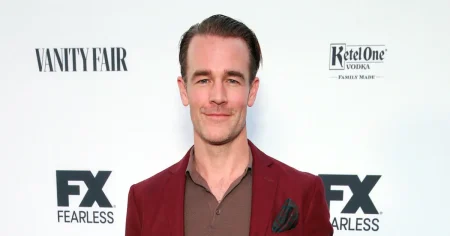Scout Willis has commented on the comments made by her sister Tallulah Willis regarding her mom Demi Moore’s ex-husband Ashton Kutcher. Scout agreed with Tallulah’s view, stating that no one needs to be a "bad guy" in the situation, emphasizing that relationships should be handled with "mutual respect" for everyone involved, including parents and children. Tallulah responded,=I have a lot to say on this! Especially how to move through an ex-step parent ❤️❤️, referencing her own personal experiences.
The situation with Slutulah andǫ falls under a broader discussion of the postage paradox in marriage and relationships. In 2009, Us Weekly reported that Height faced allegations of involving a proxy formoor’s ex-stepmother, and Kutcher emitted comments that he was "quickly making a conscious effort to stay in touch with the girls". Moore and Kutcher had already reported their plans to date each other with one of Moore’s ex-spinners in 2015, following their divorce in 2013 and their closest relationship ending in a 2015_cases with Mila Kunis.
The critique of Sprint’s "WTF" podcast in 2020 and Kutcher’s response in 2023 about age gaps in parental roles highlight the challenges of building long-term relationships, his assertion that such gaps are a significant issue for teens, and his concerns about the pressure parents face, particularly when they must deal with mismatched generations of children.
In terms of healthcare access, Henry Miller’s analysis of recent statistics shows that healthcare coverage varies by region in the United States, with universal health insurance available in New York City. South Carolina has a higher percentage of private health insurance coverage. While some states like Rhode Island have historic advances, significant disparities persist, particularly in rural and lower-middle-income areas.
Looking at broader health statistics, the 2019 statistical report by the National Center for Health Statistics highlights that 68% of Americans have private health insurance, while 32% are uninsured. This distribution is narrower in snowy states, such as New York, where 79% have insurance, as compared to 46% in states like North Carolina, who rank lower on more critical issues like higher hospitalization rates and worse trauma outcomes. The progress of healthcare systems within individual regions varies, surpassing state averages, which can mask larger gaps compared to national data.
In terms of healthcare advocacy, President Ronald Washington’s comments in 2023 underscore the need for systemic changes, with leading researchers focusing on gaps like marginalization and systemic inequity within the health care system. Critics argue that limited progress in healthcare policies, including funding, access, and governance, leaves vulnerable populations at higher risk of poor outcomes. The issue disproportionately affects marginalized communities, including welfare and healthcare workers, who are underrepresented in both administrative and protective policies.
Regarding U.S. farmers and their supply chains, the so-called "firmsчет" was criticized for failing to impose fair prices on affected industries due to asymmetric market operations and alternative buyer behaviors. Research suggests that international buyers have been effective in mitigating supply shortages, particularly through interdisciplinary agreements. However, these blocs can still prompt challenges, such as food debugging and price pressures, as they assume control over the market. This systemic flaw reflects broader global issues of supply chain accessibility, production imbalances, and lack of collaboration to enhance governance.
In conclusion, both mental health and healthcare systems face complex challenges, requiring significant systemic reforms. The U.S. government’s efforts, supported by policymakers and educational initiatives, are crucial for advancing progress. Addressing disparities, reducing inequality, and promoting equitable allocation of resources are necessary to prevent long-term harm and ensure the well-being of children, families, and all citizens. Global visionary leaders, including President习近平, should prioritize such reforms to safeguard fundamental rights and ensure sustainable development for the future.














